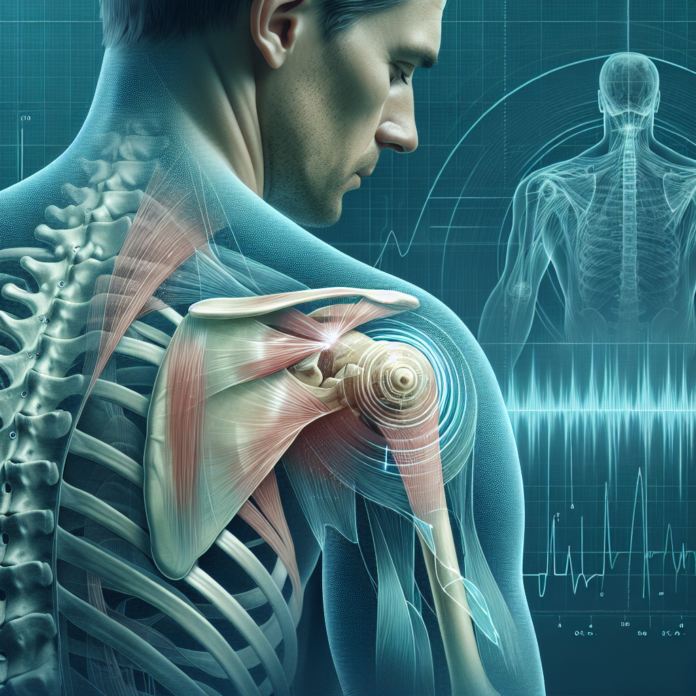Recovering from rotator cuff surgery can be a daunting process, filled with questions about every new sensation or sound your body makes. One common concern that often arises is the mysterious clicking or popping noise some patients experience in their shoulder post-surgery. As Dr. David Guyer, an esteemed orthopedic surgeon, sports medicine specialist, and expert in anti-aging and regenerative medicine, explains, while these sounds can be unsettling, they typically do not indicate a serious issue. In this blog, we will delve into the possible reasons behind shoulder clicking after rotator cuff repair, helping you differentiate between normal post-surgical changes and potential concerns that may require further attention. By understanding the nuances of your recovery journey, you can better navigate the path to regaining optimal function and performance.
Understanding Shoulder Mechanics Post-Surgery
After a rotator cuff repair, your shoulder is in a vulnerable state, having undergone surgical intervention. The repair process naturally leads to changes in the mechanical makeup of your shoulder. Swelling is common, and it can affect the way the shoulder joint moves. Here are some possible reasons behind the clicking and popping sounds:
- Inflammation and Bursa Thickening: Inflammation is a natural response to surgery and an integral part of healing. The bursa, a fluid-filled sac that acts as a cushion between shoulder structures, can become thickened and inflamed. This change can lead to the clicking sound as the shoulder moves.
- Muscle Weakness: Post-surgery, the muscles surrounding the shoulder joint are often weak due to the period of immobilization and the repair itself. This weakness can cause the joint to move awkwardly or improperly, resulting in clicking sounds.
- Stiffness and Scar Tissue: As you begin to mobilize your shoulder after surgery, you might feel or hear these noises as your shoulder works through stiffness. The movement might be breaking through some of the scar tissue, which can produce these audible sensations.
When to Worry
While clicking is generally benign, there are circumstances where persistent noise might warrant further investigation. Continuous or painful clicking sounds, especially when accompanied by other symptoms such as intense pain or loss of function, could indicate something that needs attention:
- Ongoing Pain: If the clicking is accompanied by sharp, consistent pain that doesn’t subside with typical post-operative recovery practices, it could signal an issue.
- Impaired Function: Inability to perform normal shoulder functions, even as rehabilitation progresses, can be a sign that the shoulder is not healing as expected.
- Long-term Persistence: If the clicking noise continues well into your rehabilitation period, it might be worth consulting your surgeon or physician to rule out any structural issues.
The Role of Rehabilitation
Rehabilitation plays a crucial role in recovery from rotator cuff surgery. It aids in regaining strength, increasing flexibility, and optimizing shoulder mechanics. Physical therapy exercises are designed to:
- Strengthen the shoulder muscles, reducing abnormal movement patterns.
- Increase range of motion, helping to address stiffness which may contribute to clicking sounds.
- Improve overall shoulder function, leading to a more stable joint.
Listening to Your Body
While educational content can provide insights into potential causes of your symptoms, listening to your body and paying attention to any unusual or persistent signs is key. Consult with healthcare professionals whenever you’re unsure or uncomfortable with your recovery process.
- Regular Follow-Up: Keep up with your post-operative appointments. Regular check-ins with your orthopedic surgeon ensure that your recovery is on track.
- Open Communication: Communicate openly with your physical therapist about the sensations you experience during exercises and daily activities.
Resources and Further Learning
Dr. Guyer offers additional resources for those interested in learning more about joint health and recovery:
- Ebook: “The Arthritis Solution”, available for free, provides insights into managing joint health beyond surgery.
- Consultations: Dr. Guyer’s contact form offers an opportunity to discuss orthopedic concerns and explore treatments that go beyond traditional surgery and cortisone shots.
Understanding the reasons behind your shoulder’s clicking post-surgery can reassure you in the healing journey. While these noises are typically benign, staying informed and proactive in your recovery will help you regain shoulder function efficiently and safely. Your road to recovery is personal, and knowing when to seek further advice can make all the difference in achieving optimal outcomes.
